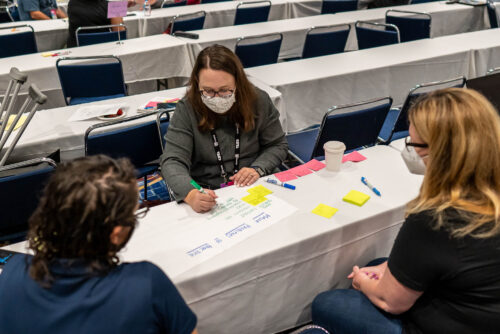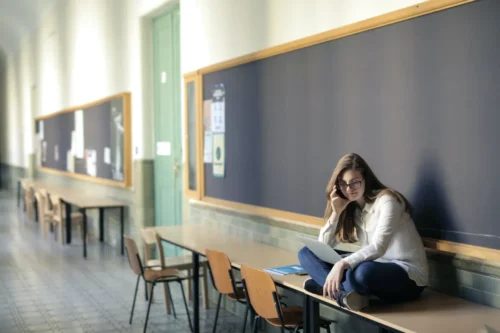
“But They Just Aren’t Interested in Computer Science” (Part Three)
Posted
Written by: Julie Smith Note: this post is part of a series about the most-cited research studies related to K12 computer science education. It’s discouraging to learn that children as young as age six express the belief that boys are better than girls at programming and at robotics, and girls have less interest in or […]
Continue Reading
“But They Just Aren’t Interested in Computer Science” (Part Two)
Posted
Written by: Julie Smith Note: this post is part of a series about the most-cited research studies related to K12 computer science education. The study’s title says it all: “Gender stereotypes about interests start early and cause gender disparities in computer science and engineering.” It’s worth noting that the careful design of their studies bolsters […]
Continue Reading
Emerging Promising Practices for CS Integration
Posted
Our recently accepted paper, Emerging Practices for Integrating Computer Science into Existing K-5 Subjects in the United States, will be presented at WIPSCE 2023 in Cambridge, England. This particular qualitative work, conducted by Monica McGill, Laycee Thigpen, and Alaina Mabie of CSEdResearch.org, included interviews with researchers and curriculum designers (n=9) who have engaged deeply in […]
Continue Reading
Conducting High-quality Education Research in Computing (2025 SIGCSE Affiliated Event)
Posted
Join us on Wednesday, February 26, 2025, from 1-5pm EST, in Pittsburgh, Pennsylvania, United States (the day before ACM SIGCSE) for a workshop on conducting high-quality education research designed to help address disparities in computing education. If you attended last year’s session, you are welcome to attend this session as well with four different topics. […]
Continue Reading
“But They Just Aren’t Interested in Computer Science” (Part One)
Posted
Written By: Julie Smith Note: this post is part of a series about the most-cited research studies related to K12 computer science education. When discussions about the lack of women in tech occur, it is sometimes observed that the disparities exist because girls just aren’t as interested in studying computer science in school and women […]
Continue Reading
National Intern Day- Intern Shout Out
Posted
Last week was National Intern Day, which gave me another reason to reflect on the many students I’ve worked with over the last seven years contributing to the K-12 CS Education Research Resource Center on our site. The Resource Center has been under development since 2017. Originally funded under a National Science Foundation grant and […]
Continue Reading
Learning Isn’t Observable. So How Do We Measure It?
Posted
Written By: Julie Smith Note: This post is the second in an occasional series about learning analytics, based on the Handbook of Learning Analytics. We measure learning constantly – think of grades on spelling quizzes, SAT scores, and the bar exam. But it’s worth remembering that learning itself cannot be observed in the same way […]
Continue Reading
Learning Analytics: What Is It?
Posted
Written by: Julie Smith, PhD, Senior Education Researcher, IACE Note: This post is the first in an occasional series about learning analytics, based on the Handbook of Learning Analytics. Concepts that are difficult to define are sometimes compared to trying to nail Jell-O to a wall. That analogy could certainly apply to learning analytics – […]
Continue Reading
Attending SIGCSE Technical Symposium 2023? We’ll be there!
Posted
We’ll be actively engaged in the 2023 SIGCSE Technical Symposium (TS) in Toronto. If you’d like to learn more about the work we have recently been engaged in, be sure to stop any of our sessions. Only our workshop requires registration. Day/TimeTypeRoomTitle Wednesday, March 15, 7-10pm Workshop 713 Creating and Modifying Existing Surveys to […]
Continue Reading
Community Listening Sessions
Posted
Given the recent discussions across asynchronous platforms this past week, many related to feedback from SIGCSE TS reviews, we have set up two listening sessions for community members to talk about their experiences and perspectives. The listening sessions are an opportunity to share concerns about barriers within the community that prevent researchers from reaching their […]
Continue Reading